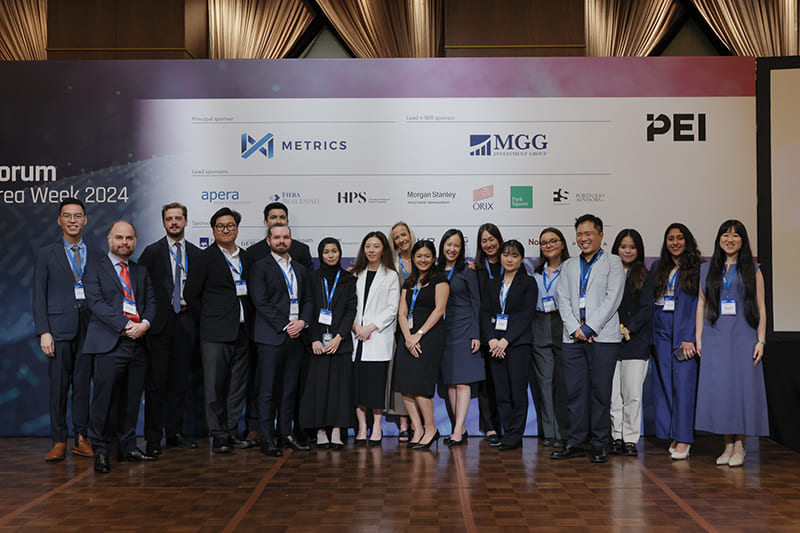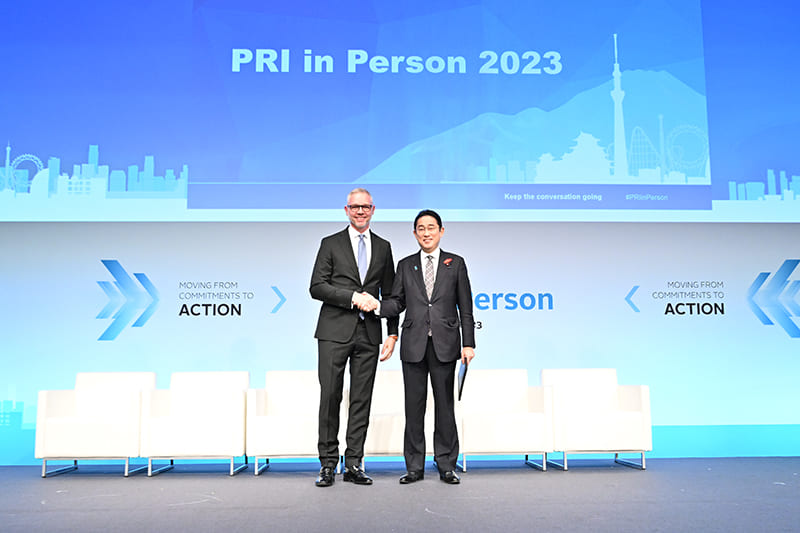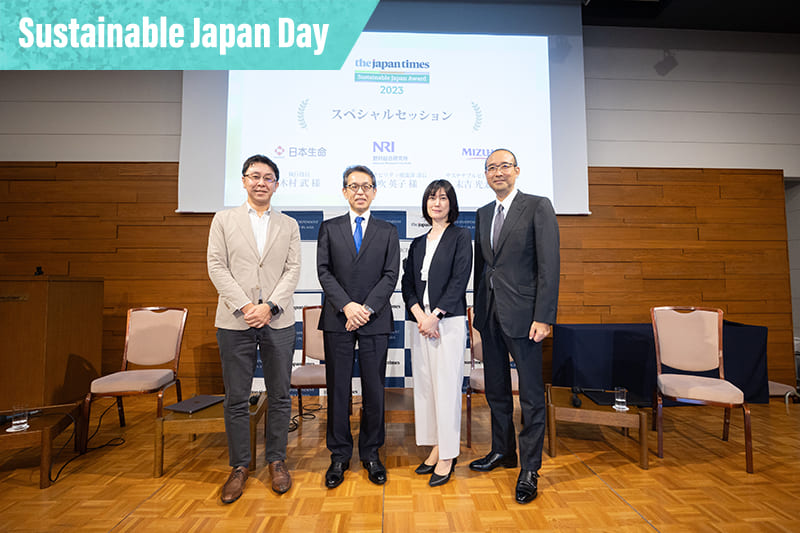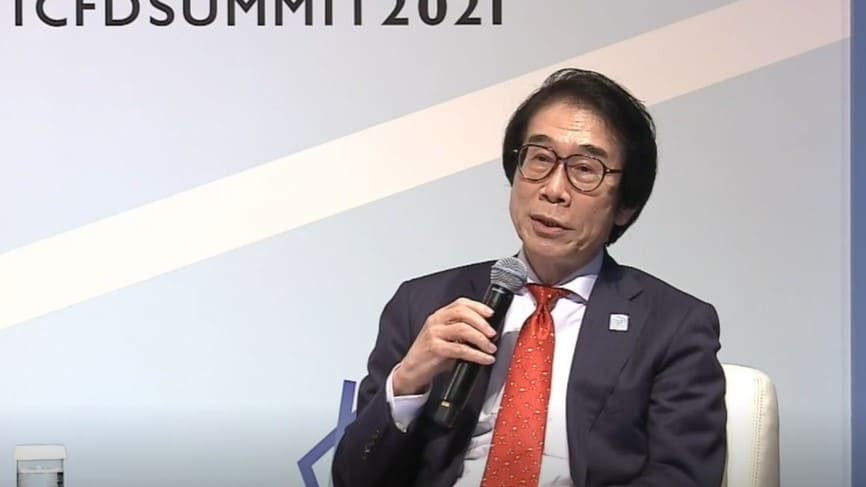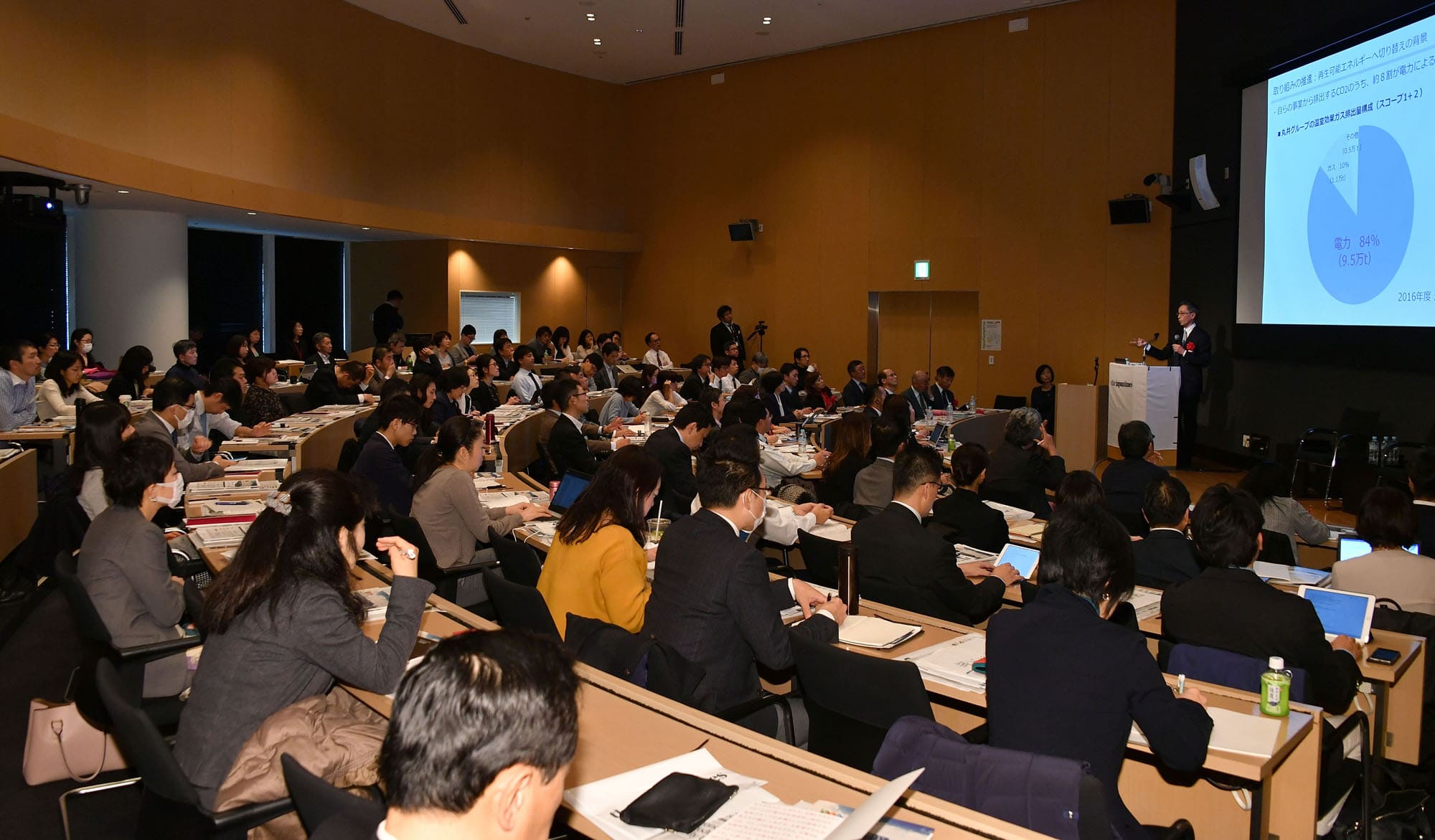October 26, 2020
Harnessing the power of finance to lessen emissions from energy
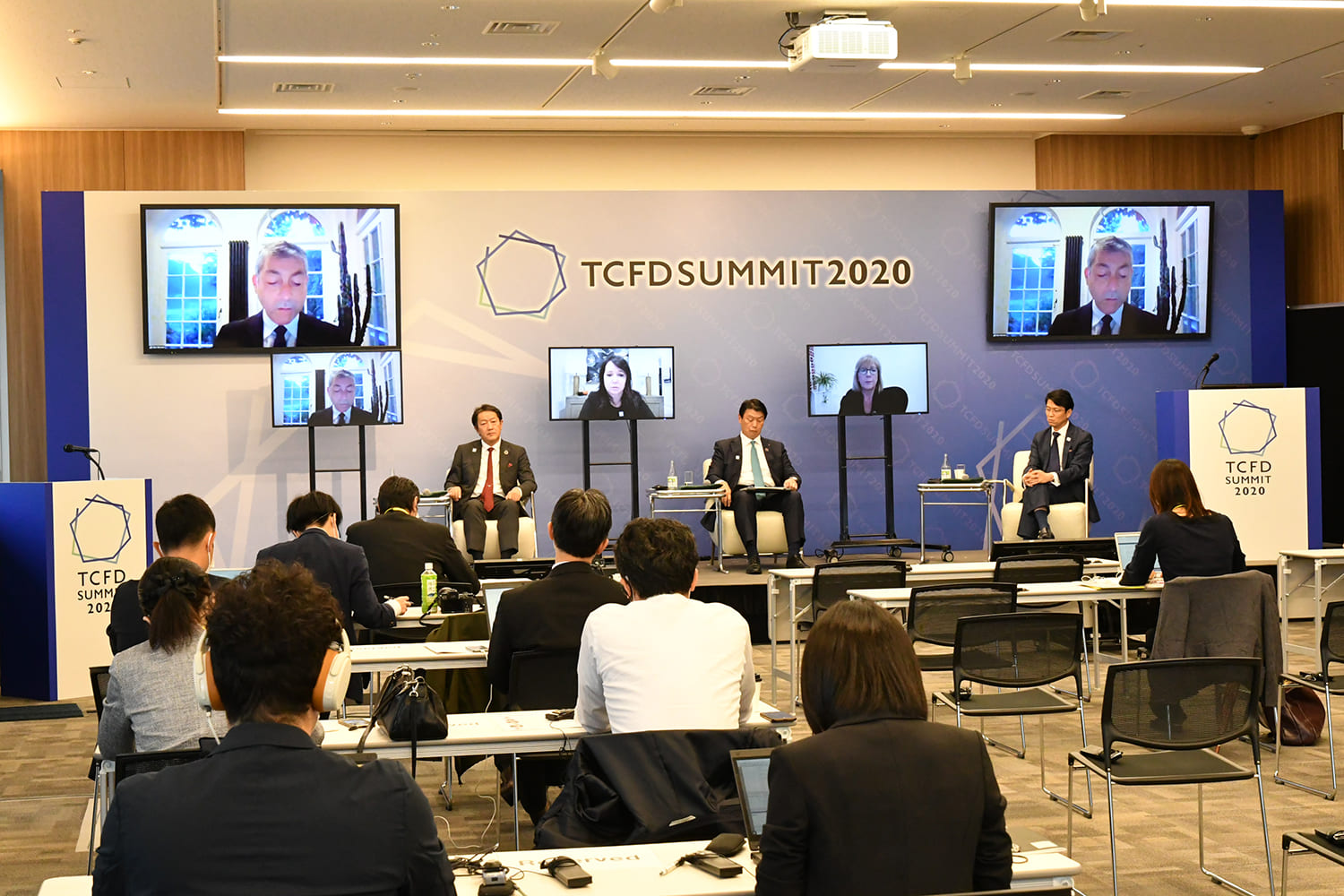
Effective use of the power of finance is becoming more important to making significant advances in responding to climate change, especially at a time when the world is opting for a green recovery from the coronavirus crisis.
The Task Force on Climate-related Financial Disclosures (TCFD), which plays a major role in this global effort, held its second annual summit on Oct. 9 in an online format. Its mission was to continue efforts to realize “a virtuous cycle of environment and growth” — a concept addressed at the G20 Osaka summit in June 2019.
The TCFD is an international organization that develops guidelines on how companies can tell stakeholders about climate-related financial risks and opportunities.
The summit began with a message from Prime Minister Yoshihide Suga that “The government of Japan will help as the TCFD becomes utilized and expanded around the world,” followed by speeches and discussions involving leaders of major global companies, financial institutions and other organizations.
In a special discussion moderated by Summit Ambassador Hiromichi Mizuno, a special adviser to the Economy, Trade and Industry Ministry, five panelists from the private and public sectors and an international organization shared their insights.
One panelist, leading energy company Royal Dutch Shell, has been making extensive climate efforts and setting ambitious goals, such as aiming to become a zero-emissions business by 2050 or sooner, and has been reporting its progress in line with TCFD recommendations.
However, Executive Vice President Taxation and Controller Alan McLean revealed the difficulties faced by Shell, like other companies making climate and other environmental, social and governance efforts. “Being responsible is hard to define and measure,” he said. He stressed the importance of setting a standard of ESG reporting that incorporates the TCFD guidelines and making it “a common language of all businesses.” He added, “The more we speak the same language, use the same metrics and embrace transparency, the greater the chances of success.”
Fiona Reynolds, CEO of the Principles for Responsible Investment Association, agreed: “In terms of climate, we see the TCFD as the best available framework.” But she also pointed out that there are proliferating standards on sustainability and ESG, leaving gaps. Rather than making a new framework, she said, PRI is trying to harmonize standards so investors get practical information and corporations do not waste time wondering which to follow.
Jun Aoki, executive corporate officer and chief social value creation officer of Shiseido Co., provided a fresh view, saying the COVID-19 pandemic had proved that disruptive innovations are needed to achieve significant reductions in emissions because even with drastically lower energy demand during the crisis, countries’ emissions even at their lowest points decreased only by an average of 26%, according to research. He stressed that companies should introduce innovative players who can turn climate risks into opportunities for their value chains to accelerate climate efforts.
From an investor’s point of view, Hiroshi Ozeki, president and CEO of Nissay Asset Management Corp., also stressed the importance of disclosing not only climate risks but also opportunities through scenario analysis, as the TCFD asks. “We focus putting a great deal of active investment effort on ESG. We pay close attention to the disclosure of information on opportunity,” he said. He noted that the TCFD recommendations can be taken as an enhancement to the reports published by many companies, making it easier for more companies to do the TCFD reporting.
Marcie Frost, CEO of the California Public Employees’ Retirement System (CalPERS), the largest U.S. public pension plan, noted that each sector has to do its part in a collective effort to steer the global economy toward climate-aware growth. “Companies need to continue disclosure so investors like CalPERS and GPIF (the Government Pension Investment Fund) will have the information that we need to be able to invest appropriately and understand the risks we are taking, making sure that we are compensated for those risks,” she said. She added that organizations like PRI can call a large group of asset owners together to give the disclosure frameworks more consistency.

